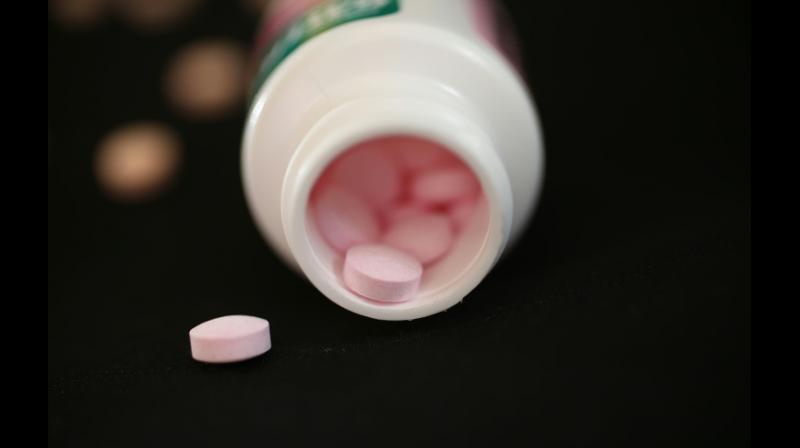Aspirin or no aspirin?
Bleeding risks may offset aspirin's benefit vs heart disease.

Should healthy people take aspirin to ward off heart disease? The notion has been controversial, and the medical advice mixed.
But a review of scientific data on the topic Tuesday showed that any benefits are slight, and are counterbalanced by a matching rise in bleeding risks. Aspirin is a blood thinner and can help prevent clots that may lead to heart attack or stroke. But aspirin also boosts the risk of haemorrhage in the brain, stomach and intestines.
"When considering the totality of evidence, cardiovascular benefits associated with aspirin were modest and equally balanced by major bleeding events," said the report in the Journal of the American Medical Association.
The meta-analysis examined 10 prior studies involving a total of more than 164,000 people with an average age of 62. Comparing aspirin users to those who don't take aspirin, researchers found "significant reductions" in strokes, heart attacks and deaths from cardiovascular disease among those who took aspirin.
Aspirin use was also linked to an increased risk of "major bleeding events compared with no aspirin," it said. Statistically, the benefits were close to the risks.
Heart disease is the top killer of people worldwide, taking 17.9 million lives around the planet each year, for one-third of all deaths, says the World Health Organization.
According to Jeremy Pearson, associate medical director of the British Heart Foundation, the meta-analysis "valuably updates our knowledge, but does not change the current perspective. It confirms that the average risk of harm exceeds benefit, so that guidelines should not be changed." Aspirin is not recommended in Britain for prevention of heart disease.
Sean Zheng, a cardiologist at King's College Hospital and lead author of the JAMA report, said the public may not understand that taking low-dose, or baby aspirin, carries significant risks.
"In my opinion, there is no place for routine use of aspirin in patients who are healthy," he told AFP. "Maybe it's because it's over the counter and it's described as a baby aspirin, but actually our data show that there is a very real risk, and you shouldn't take it with the expectation that it's completely benign and safe."
The study also delved into aspirin's preventive benefits when it comes to cancer, and found "no overall association between aspirin use and incident cancer or cancer mortality."

